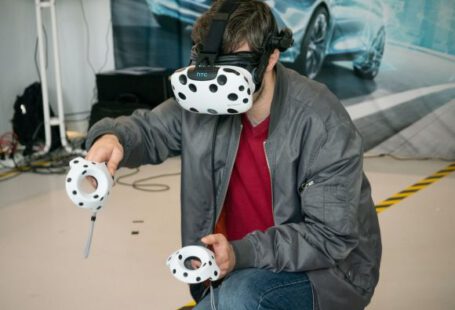In today’s fast-paced business world, teamwork and collaboration are essential for success. However, coordinating and communicating with team members can sometimes be challenging, especially when working remotely or across different time zones. This is where artificial intelligence (AI) comes into play. AI has the potential to revolutionize team collaboration by automating tasks, improving communication, and enhancing productivity. In this article, we will explore how AI can enhance team collaboration in the workplace.
Automating Tedious Tasks
One of the biggest advantages of AI in team collaboration is its ability to automate tedious tasks that consume valuable time and resources. With AI-powered tools, teams can streamline repetitive tasks such as data entry, file organization, and scheduling meetings. By automating these mundane activities, team members can focus on more meaningful and strategic work, leading to increased productivity and efficiency.
Improving Communication
Effective communication is at the core of successful teamwork. AI can significantly improve communication by providing real-time language translation, speech-to-text capabilities, and intelligent chatbots. For global teams working in different languages, AI-powered translation tools can bridge the communication gap, enabling seamless collaboration. Additionally, speech-to-text capabilities can transcribe conversations during virtual meetings, making it easier for team members to refer back to important points discussed. Intelligent chatbots can also assist in answering common queries, freeing up human team members to focus on more complex and critical tasks.
Enhancing Productivity
AI can greatly enhance team productivity by providing intelligent insights and recommendations. For example, AI-powered project management tools can analyze team performance data and identify bottlenecks or areas for improvement. By providing real-time feedback and suggestions, AI can help teams prioritize tasks, optimize workflows, and meet deadlines more efficiently. These insights can also assist team leaders in making data-driven decisions to allocate resources and manage workloads effectively.
Facilitating Remote Collaboration
In recent years, remote work has become increasingly popular, and AI can play a crucial role in facilitating remote collaboration. AI-powered virtual meeting software can enable teams to collaborate seamlessly, regardless of their physical location. Features such as screen sharing, virtual whiteboards, and real-time document collaboration allow team members to work together as if they were in the same room. AI algorithms can also analyze team dynamics and provide recommendations on how to improve remote collaboration, such as scheduling regular check-ins or adjusting communication channels.
Ensuring Data Security
With the increasing reliance on digital collaboration tools, data security has become a top concern for organizations. AI can help enhance data security by detecting potential security breaches, analyzing patterns, and identifying anomalies in real-time. AI-powered cybersecurity tools can also automate threat detection and response, providing an extra layer of protection for sensitive information. By ensuring data security, AI enables teams to collaborate confidently, knowing that their information is safeguarded.
In conclusion
AI has the potential to transform team collaboration in the workplace. By automating tedious tasks, improving communication, enhancing productivity, facilitating remote collaboration, and ensuring data security, AI empowers teams to work more efficiently and effectively. As AI technology continues to advance, it is essential for organizations to embrace these tools and integrate them into their collaboration strategies. With AI as a powerful ally, teams can unlock their full potential and achieve greater success in today’s competitive business landscape.





